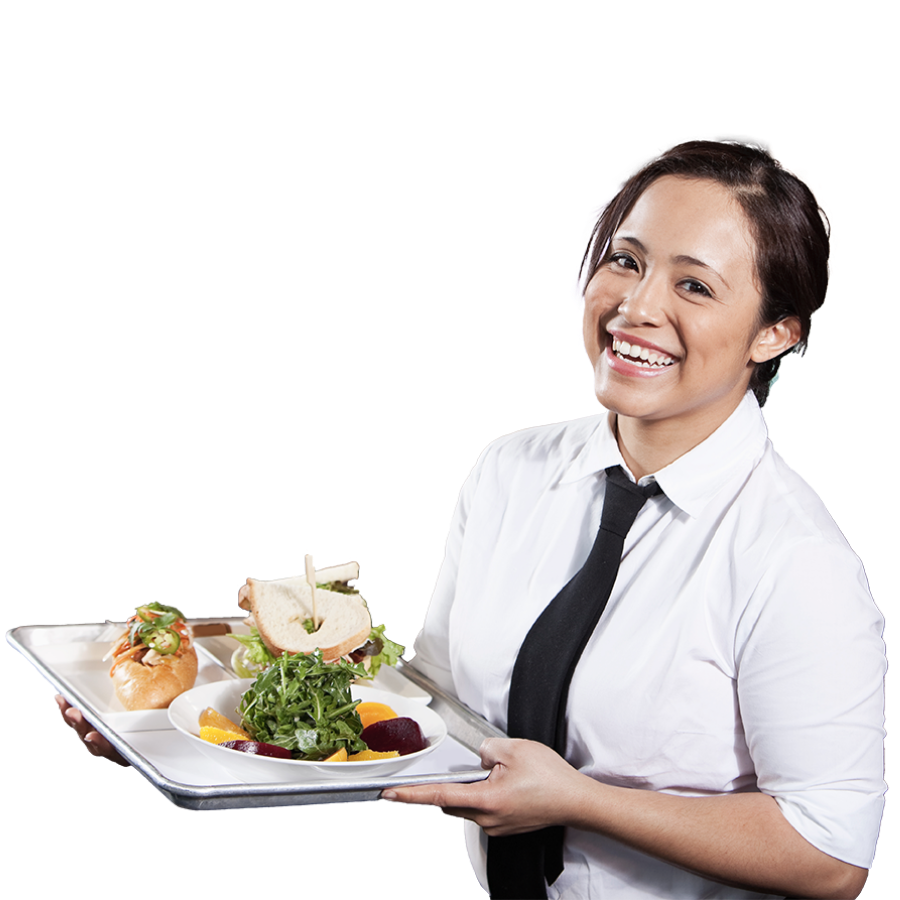If you’re considering working in the food and hospitality industries, have just started a food handling job, or are launching a food business, you might be asking yourself if it’s really necessary to complete – or have your staff complete – food handler training.
Here are six reasons why food handler training is a must-have for anyone in the food or hospitality industries:
1. Food handler training protects your customers
This is first on our list because it’s perhaps the most important reason of all. Ensuring you receive proper food handler training protects the customers you serve from food safety incidents, such as allergic reactions, injuries and foodborne illness outbreaks.
Some of the worst foodborne illness outbreaks in recent years have been due to poorly trained food handlers not following correct food safety procedures. The best ways to protect your customers are to ensure that all staff are properly trained and that they know how to handle and work with food safely.
2. Food handler training is mandatory
In most states and counties, some form of food handler or food safety training is legally required for employment, whether you serve, prepare, or transport food, or are responsible for cleaning, sanitizing and disinfecting food equipment and utensils. Some states require proof of completion of a food safety course before you even start the job.
In states like Illinois, Texas and California, food handler training is not only a requirement, but the course has to be accredited by a certifying body, such as the ANSI National Accreditation Board (ANAB). If your training isn’t accredited where required, it will not be recognized by the state. Userve’s Food Handler Courses are ANAB-accredited. Check with your local health department to find out the training requirements in your state.
3. Food handler training protects you from fines or penalties
Health inspectors closely monitor food businesses to ensure that they’re following any local, state or federal food safety regulations. This includes checking that food handler training requirements have been met. Not meeting these compliance requirements can result in your business being fined or become at risk for closure.
Additionally, the costs that could arise if a food safety incident occurs can be staggering, all depending on the number of people affected; potential revenue loss; and if lawsuits, legal fees and fines are incurred.
Ensuring that all food handlers are trained in food safety helps to protect business owners from such consequences.
4. Food handler training protects your reputation
Like #3, this one is particularly important for businesses. If your business is responsible for a foodborne illness outbreak, there are additional consequences beyond the legal and financial ones we mentioned above. If word spreads through the media that your establishment was behind people becoming ill, you could have a public relations disaster on your hands. The reputations of many businesses have been unable to recover from such incidents, and some have had to close down as a result.
But it doesn’t only take a serious incident for a food business’s reputation to be damaged. If a customer sees a food handler pick their nose or wipe their hands with a dirty cloth and then touch food, that can easily influence perception of both the individual and the business. This can lead to bad reviews on social media or by word-of-mouth, which can have an effect that is both damaging and hard to shake.
5. Food handler training increases engagement and motivation
Business owners, training managers and individual food handlers alike will appreciate this one. Training and development opportunities are increasingly important for employees and employers, as it relates to company culture.
The 2022 LinkedIn Employee Well-Being Report revealed that “Opportunities to Learn and Grow” was number one on the list of top drivers of work culture, up a significant eight positions from 2019 to the end of 2021. Employees who feel like they know what they’re doing are shown to perform better and be more motivated to work.
Additionally, research shows that 40% of poorly trained employees leave their position within the first year. With recruitment and onboarding costs being so high, that’s an expense that most businesses would like to avoid.
Visit our Food Handler course page to learn more about this training and the benefits it brings to your business and employees.
6. Food handler training makes you more attractive to employers
Given all of the other important reasons we mentioned above, it should come as no surprise that food handlers that have completed training are that much more desirable to hiring managers. If you’re able to demonstrate that you already have the skills and certificates needed, not just to work, but to work effectively and safely, you are that much more likely to be hired.
For more information on the food handler training in your state, click on the link below. Userve’s Food Handler Courses are the fastest, easiest way to get your Food Handler Card. If you’re a business owner and would like to learn more about how Userve can help train your employees, contact us today.

